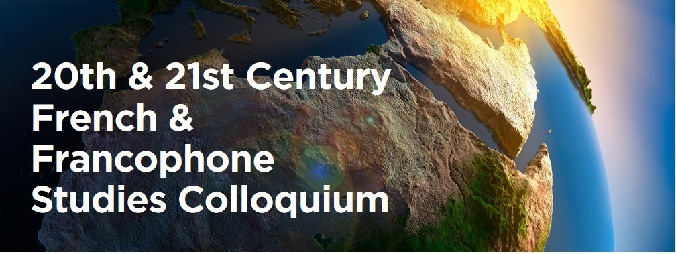Modern Languages and Literatures, Department of

20th and 21st Century French and Francophone Studies International Colloquium
Mourning the Loss of the Land in Le Clézio’s ‘Villa Aurore’ and ‘Orlamonde.’
Date of this Version
4-2020
Loading...
Document Type
Presentation
Citation
Amanda Vredenburgh, “Mourning the Loss of the Land in Le Clézio’s ‘Villa Aurore’ and ‘Orlamonde,’” 20th & 21st Century French and Francophone Studies International Colloquium, University of Nebraska-Lincoln, March 26-28, 2020. https://digitalcommons.unl.edu/ffsc2020/
DOI: 10.32873/unl.dc.ffsc.015
Abstract
Drawing on the popular concept developed by Pablo Servigne and Raphaël Stevens in Comment tout peut s’effrondrer (2015), la collapsologie, which shifts our approach from uniquely finding ways of understanding and preventing environmental changes to also responding to them, this talk focuses on the ways in which fiction might help us to confront such changes brought about by the devastation of the landscape. In her discussion of two short stories by J.M.G. Le Clézio, Villa Aurore and Orlamonde, Amanda Vredenburgh demonstrates the therapeutic potential of fiction that engages with the psychological impact of environmental destruction on individuals, particularly their self-reevaluation and mourning.
My recorded conference paper, entitled “Mourning the Loss of the Land in Le Clézio’s ‘Villa Aurore’ and ‘Orlamonde.’” It was supposed to be given in the panel “Identity and Landscape: Revisiting the land, rethinking the self.”
It is also online at https://youtu.be/w1mOFmTqCEc


Comments
Copyright © 2020 Amanda Vredenburgh